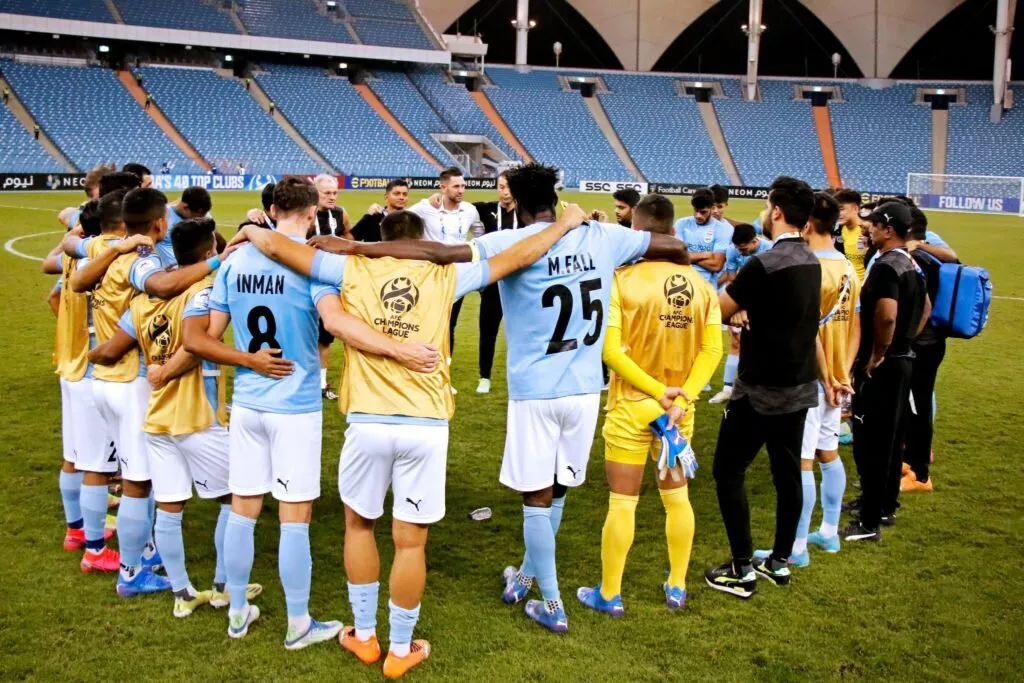Explainer: What is the new ISL playoffs system & how will it affect your team?

The format will see an increased number of teams in the knockout stages.
The Indian Super League (ISL) continues to evolve. In the next season, the league is set to introduce a new structure. The league’s governing body has decided to redesign the playoffs system to help bring a twist to the end of the campaign. This is set to bring more excitement for the fans.
Not only will the ISL games now take place from Thursday-Sunday (weekend) period, there will be other serious changes in place too. The ISL playoffs system has, in its history so far, been akin to a knockout structure. However, it is now being reshaped to help more teams and also increase the number of games. So, let’s us delve right into it and explain how the new ISL playoffs system works.
The original ISL playoffs system
Since its inception in 2014, the ISL organizing body had recommended a playoffs system. This was to make it standout from the I-League and it was heavily influenced by the Major League Soccer (MLS) structure.
In the first few years, the top four teams from the league phase would qualify for the playoffs. Two playoff (semi-final) double-legged games would be played between the four. This would lead to a grand finale where the ISL champion was crowned.
But, from the 2019/20 season, things changed. The ISL restructured itself so that the league winners would get qualification into the AFC Champions League group stages. They created the ‘League Winners' Shield’ - won by the best team during the league phase.
The playoffs structure, however, remained the same. Four teams played each other, with the first-placed side facing the fourth and the second and third-placed teams facing each other. This, although, will now see a change.
The new structure

A new playoff structure has been developed that will see six teams fight it out after the league phase is over.
This structure is heavily influenced by the EFL Championship. In that league, the first two teams get guaranteed promotion into the Premier League – while the other four fight for that third promotion spot. However, it must be mentioned that there is no promotion or relegation (yet) in the ISL.
In the new structure, the first two teams from the league phase will get automatic qualification to the playoff games. The other four teams (from #3 to #6) will play a single-legged knockout tie. In this, the third-placed team from the league phase faces the sixth-placed team, while the fourth and fifth-placed sides face each other.
The winners from respective matches will face the top two teams that have already qualified. They will then play double-legged semi-finals, before the ISL title is bestowed upon whoever wins the final.
The league phase champion will get automatic qualification into the AFC Champions League group stages. The winners of the ISL playoffs will qualify for the next season’s AFC Cup. If a team wins both the league phase as well as the playoffs, the second-best team during the league phase will qualify for the AFC Cup.
How will the changes benefit the teams?
First, the changes will ensure that more matches take place. With the schedule released, the league phase is set to end in February. This would mean the playoff games will take place in March. At least two more matches will happen because of these changes, which is a good thing for both footballers and the fans.
This structural redesign will also provide more incentive for the lower-placed teams on the standings. Over the years, ISL teams that were placed below sixth or seventh place have often given up in the final phase of the competition after their top four hopes disappeared.
But now, with that criteria raised to sixth place, a lot more teams can fight for a place in the playoffs. This means even the teams ranked eighth or below can have hopes of salvaging their seasons in the final few weeks. This should mark a sharp raise in competitiveness, more closely-fought games and players not slacking off after a point.
Irrespective, these changes should only be a positive thing for most ISL teams. It should also result in a more exciting, unpredictable campaign that should be a lot of fun.